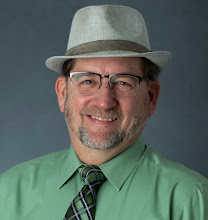I'm a numbers guy, a math major. Numerical patterns catch my eye, whether buried deep in financial records or posted publicly on street signs. ( Here's my favortie highway sign, at the "big light" in Sevierville, where US 411 and US 441 conspire to confound the directionally challenged.) Today it's the calendar that carries a digital association: 4/11 is the date, and 411 is also the most frequently dialed number on my Blackberry (owing perhaps to my chronic need for verbal direction to compensate for my lack of prior planning). In a nutshell, 411 is the number you need when you need somebody's number.
In ancient cultures, knowing a person's name implied a certain amount of power over them. The modern equivalent is knowing their number. Having transitioned slowly from land line to cell phone, I have noticed that those who know me well call me on my cell, while the old "home phone" number is apparently reserved for strangers, solicitors, and those whose list-keeping deficiencies left them dependent on the obsolescent phone book. Thus conditioned and biased, I typically answer my cell, while I let "the machine" answer the home's phone.
I'm not aware of any 411 or "directory assistance" service that shares cell phone numbers, nor do I know of any "phone book" that publishes them. This may be a temporary, transitional condition. Or it may reveal something about the reconstruction of our culture. In many ways, the "phone book" has been superseded by Facebook, who announced this week their 200 millionth "face" (member). Along with it's sister social-networking sites, Facebook has engineered an interesting and revealing balance between publicity and privacy, facilitating the finding of long-lost friends and associates, while retaining an "invitation-only" restriction for more closely-held information.
Which raises an interesting question: how much do you want to be known? With specious simplicity, this inescapable question operates at three distinct levels:
First, how deep is your desire to be known? Do you long to be understood and appreciated, or are you more content with behind-the-scenes, under-the-radar anonymity?
Second, how widely do you want to be known? Do you find satisfaction in a large number of friends (and perhaps admirers), or do you prefer the sanctity of a smaller "inner circle"?
Third, how well do you want to be known? Do you seek opportunity to express the secrets of your soul in revealing and transparent authenticity, or do you lean toward concealing the private and personal aspects of your life?
I have heard it said that we can never know more about another person than we are willing to reveal about ourselves. It rings true, and delivers quite a dilemma to the closet introverts among us: either we lower our shields and allow others (at least a few) to know us as we truly are, or we effectively banish ourselves from intimacy and fellowship with those we would truly like to know. Reveal too much, and we risk rejection and ridicule for faults we have not overcome, or for uniqueness not commonly embraced. Conceal too much, and we concede isolation from society and disconnectedness from needed community. It is, if you will, a delicate dance of veils.
To paraphrase St. Francis,
May God grant you the courage to reveal what is authentic,
The grace to conceal what is intimate,
And the wisdom to know the difference.
Now we see but a poor reflection
As in a mirror;
Then we shall see face to face.
Now I know in part;
Then I shall know fully,
Even as I am fully known.
-- I Corinthians 13:12


No comments:
Post a Comment